Review for The Castle
I didn’t know about this film until this release. Which is surprising as Franz Kafka’s ‘The Castle’ has been in my ‘Top Ten Books of All Time’ list for the past couple of decades. For me, ‘The Castle’ was Kafka’s masterpiece, the point at which he nailed a notion he had already explored in ‘The Trial’. Again the novel features a hapless Josef K, set against an absurdly bureaucratic society where the banal takes on an increasingly dream-like state where one unrelated incident seems to blend seamlessly to the next.
Probably the reason why this hadn’t appeared on my radar was, quite simply, that this was a made for TV movie, not a theatrical release. Of course, it’s director, Austrian Michael Haneke is enjoying high profile success presently with ‘Amour’, and it may be this that has prompted the release of this little seen and 15 year old movie, along with box-set collections of his previous work. Indeed, it would seem as if Haneke is swiftly growing a reputation as the only serious European film-maker at work today, producing often difficult works which demand much of their audience but never-the-less providing highly thought-provoking vistas on which to ruminate. As a result, against all the odds, his popularity has risen to an all-time high as critics and cinema-goers alike flock to his latest offerings. So it’s actually quite easy to see why ‘The Castle’ should hold great appeal for Heneke.
This relentlessly bleak film follows the trials and tribulations of ‘K’ (we assume the same Josef K of ‘The Trial’) who is a middle-aged man who arrives at a small village dominated by a Castle. He has been called by the Castle to offer professional services as a land surveyor. Things get off to a bad start when he arrives at a local café only to be told by locals that he is not only not allowed in the village but that he is certainly not allowed at The Castle. Exhausted he tries to sleep in a corner of this hapless café whilst the problem is sorted out. Eventually he has some joy and his story appears to stand up.
He is shortly joined by two imbecilic assistants (Eitner and Giering) who have been appointed to him, despite their lack of experience and they clearly respect his superiority, being absurdly keen to please him, despite constantly getting in his way.
After some confusion, it is suggested that K should report to a man named Klamm, though meeting with him will not be easy. Oddly, Heneke took a call to never actually show the Castle’s exterior, though we do eventually see its myriad of strange rooms as K lumbers in an almost dream-like state from one department to another in a fruitless attempt to actually start working.
K finds himself in a series of increasingly surreal situations including being hidden in the basement of the castle where beer seems to be served to servants and falling under the spell of the ‘barmaid’, a sadly gaunt figure who pulls him to her for sex under the counter. When the lights come back on we see that his assistants are sitting in the dark with them. The dreamy and squirming surrealism of this is later topped when all four wake up in a classroom of school-children – you have to see it to get it.
The film reminded me just how heavily influenced David Lynch was by Kafka and, possibly, by The Castle in particular. There is much in his debut ‘Eraserhead’ that mirrors the bleak nightmarish surrealism of this. I wonder if Haneke re-watched that which in turn influenced this? Who knows. As far as I can recall (it’s perhaps ten years since I last read the book) it seems a pretty faithful reflection of that so possibly not.
Something of great irritation to me was Heneke’s use of abrupt cuts to black – apparently something a trademark. I found this got in the way again and again, almost like someone turning of the set, and the almost random nature of it was infuriating. I guess for Haneke it’s a device to move from one scene to the next though after 100 years of film-making, there’ sprobably a good reason why most film-makers don’t use the device. Then again, Heneke is not too concerned with keeping his audience comfortable so maybe he likes it for this reason.
Ulrich Mühe is perfectly cast as K exuding just the right amount of bewilderment and resignantion. He sadly passed away in 2007. The end of the film is as conclusive as the book, which it is claimed was never finished. And that seems to work just fine. Anything more conclusive would have felt incongruent. But don’t let me spoil it for you…
Image quality if fine if not spectacular. It’s worth noting that the film is almost the polar opposite of sixties Technicolor, using a slightly grainy underexposed a look that is lacking in great contrast. This may well have been deliberate of course, though it might also betray that the film was shot on a budget and possibly on 16mm before being bumped to 35mm at the mastering stage. I don’t know this to be the case but it’s not hard to imagine it to be so.
Extras wise you get a trailer plus a real treat for Haneke fans – a one hour documentary ’24 Realities Per Second’ which is from 1995. Filmed over the previous two and a half years, two documentary makers followed Haneke as he viewed locations, during filming, at public screenings and so on. A serious man, the documentary certainly gives an impression of his working ethos and sensibility.
Oddly though, despite thoroughly enjoying ‘The Castle’ I don’t feel personally inclined to rush out and grab the Heneke box set. I’m sure it’s worthy and moving stuff, it’s just that he seems to want to give his audiences a hard time. ‘The Castle’ will keep me pondering for a few months and I think I for one would appreciate Heneke all the more in small doses spread a few months apart.
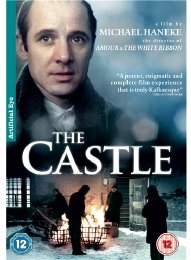
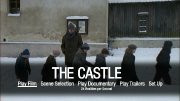
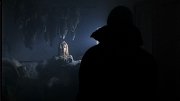
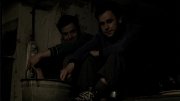
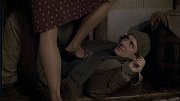
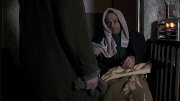
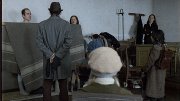
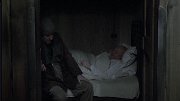
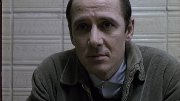
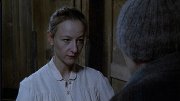
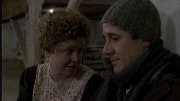










































Your Opinions and Comments
Be the first to post a comment!